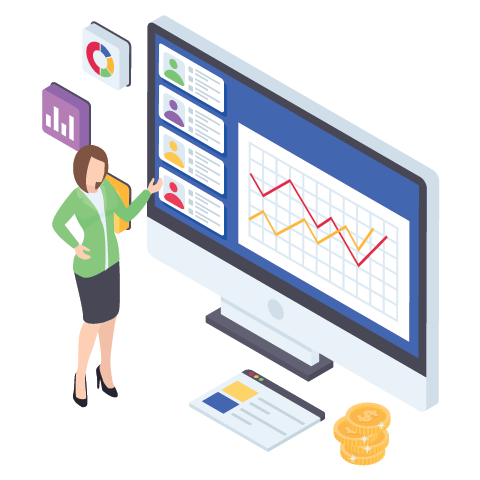Course Details
Python is a high-level, interpreted programming language known for its simplicity and readability. It was created by Guido van Rossum and first released in 1991. Python emphasizes code readability and allows programmers to express concepts in fewer lines of code compared to many other languages.

Python
Python is a high-level, interpreted programming language known for its simplicity and readability. It was created by Guido van Rossum and first released in 1991. Python emphasizes code readability and allows programmers to express concepts in fewer lines of code compared to many other languages.
Course Fee
20,000
Available Seats
30
Schedule
11.00 am - 1.00 pm
History of Python
1980s: Guido van Rossum began working on a new language as a hobby project, inspired by ABC language.
1991: Python 0.9.0 released, featuring classes, functions, exceptions, and modules.
2000: Python 2.0 released with new features like garbage collection and list comprehensions.
2008: Python 2.0 released with new features like garbage collection and list comprehensions.
2008: Python 2.0 released with new features like garbage collection and list comprehensions.
2020: Python 2 officially reached its end of life.

Key Features of Python
Simple and Readable Syntax:Looks almost like plain English, making it beginner-friendly.
Interpreted Language: No need to compile before running the code.
Dynamically Typed: No need to declare variable types—they are inferred at runtime.

Popular Python Libraries and Frameworks
Data Science & AI: Includes NumPy – numerical computing, Pandas – data analysis and manipulation,Matplotlib / Seaborn – data visualization, Scikit-learn – machine learning and TensorFlow / PyTorch – deep learning.
Web Development:Includes Flask – lightweight web framework, Django – full-stack web framework
Automation & Scripting: Includes Selenium – browser automation,BeautifulSoup / Scrapy – web scraping, Requests – HTTP library
Game Development: Pygame – 2D game engine
DevOps & System Scripting: Ansible – IT automation (written in Python), Fabric – SSH and deployment tools

Advantages of Python
Beginner-Friendly: Great for first-time programmers.
Readable Code: Easy to understand and maintain.
Rich Libraries: Saves time and effort.
Versatile: Useful in web dev, data science, AI, scripting, and more.

Limitations of Python
Slower Execution Speed: Compared to compiled languages like C++ or Java.
Not Ideal for Mobile Development: Few mobile apps are built using Python.
High Memory Usage: Not suitable for memory-intensive tasks.
Weak in Multi-threading: Because of the Global Interpreter Lock (GIL).
